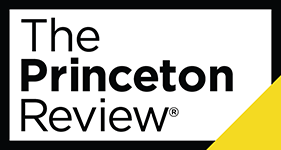Related Research Articles

The SAT is a standardized test widely used for college admissions in the United States. Since its debut in 1926, its name and scoring have changed several times. For much of its history, it was called the Scholastic Aptitude Test and had two components, Verbal and Mathematical, each of which was scored on a range from 200 to 800. Later it was called the Scholastic Assessment Test, then the SAT I: Reasoning Test, then the SAT Reasoning Test, then simply the SAT.

The General Certificate of Secondary Education (GCSE) is an academic qualification in a range of subjects taken in England, Wales and Northern Ireland, having been introduced in September 1986 and its first exams taken in 1988. State schools in Scotland use the Scottish Qualifications Certificate instead. However, private schools in Scotland often choose to follow the English GCSE system.

Advanced Placement (AP) is a program in the United States and Canada created by the College Board. AP offers undergraduate university-level curricula and examinations to high school students. Colleges and universities in the US and elsewhere may grant placement and course credit to students who obtain qualifying scores on the examinations.

Educational Testing Service (ETS), founded in 1947, is the world's largest private educational testing and assessment organization. It is headquartered in Lawrence Township, New Jersey, but has a Princeton address.

The College Board, styled as CollegeBoard, is an American not-for-profit organization that was formed in December 1899 as the College Entrance Examination Board (CEEB) to expand access to higher education. While the College Board is not an association of colleges, it runs a membership association of institutions, including over 6,000 schools, colleges, universities, and other educational organizations.

The Princeton Review is an education services company providing tutoring, test preparation and admission resources for students. It was founded in 1981, and since that time has worked with over 400 million students. Services are delivered by 4,000+ tutors and teachers in the United States, Canada and international offices in 21 countries.; online resources; more than 150 print and digital books published by Penguin Random House; and dozens of categories of school rankings. The Princeton Review's affiliate division, Tutor.com, provides online tutoring services. The Princeton Review is headquartered in New York City and is privately held. The Princeton Review is not associated with Princeton University.

Kaplan, Inc. is an international educational services company that provides educational and training services to colleges, universities, businesses and individuals around the world. Founded in 1938 by Stanley Kaplan, the company offers a variety of test preparation, certifications, and student support services. The company is headquartered in Fort Lauderdale, Florida, and is a wholly owned subsidiary of Graham Holdings Company.
Advanced Placement (AP) Computer Science A is an AP Computer Science course and examination offered by the College Board to high school students as an opportunity to earn college credit for a college-level computer science course. AP Computer Science A is meant to be the equivalent of a first-semester course in computer science. The AP exam currently tests students on their knowledge of Java.
Advanced Placement (AP) Spanish Language and Culture is a course and examination offered by the College Board in the United States education system as part of the Advanced Placement Program.
Advanced Placement (AP) United States History ) is a college-level course and examination offered by College Board as part of the Advanced Placement Program.

Advanced Placement (AP) examinations are exams offered in United States by the College Board and are taken each May by students. The tests are the culmination of year-long Advanced Placement (AP) courses, which are typically offered at the high school level. AP exams have a multiple-choice section and a free-response section.
Advanced Placement (AP) Physics C: Mechanics is an introductory physics course administered by the American College Board as part of its Advanced Placement program. It is intended to serve as a proxy for a one-semester calculus-based university course in mechanics. Physics C: Mechanics may be combined with its electricity and magnetism counterpart to form a year-long course that prepares for both exams.
The National Center for Fair & Open Testing, also known as FairTest, is an American educational policy organization that opposes standardized testing and their use in university admission.
Adtalem Global Education Inc. is a US corporation based in Chicago, Illinois, that operates several for-profit higher education institutions, including American University of the Caribbean School of Medicine, Chamberlain University, EduPristine, Ross University School of Medicine, Ross University School of Veterinary Medicine, and Walden University.
BPP University is a private university in the United Kingdom.

SAT Subject Tests were a set of multiple-choice standardized tests given by The College Board on individual topics, typically taken to improve a student's credentials for college admissions in the United States. For most of their existence, from their introduction in 1937 until 1994, the SAT Subject Tests were known as Achievement Tests, and until January 2005, they were known as SAT II: Subject Tests. They are still commonly known by these names. Unlike the Scholastic Aptitude Test (SAT) that the College Board offers, which are intended to measure general aptitude for academic studies, the Achievement Tests are intended to measure the level of knowledge and understanding in a variety of specific subjects. Like the SAT, the scores for an Achievement Test range from 200 (lowest) to 800 (highest).

An exam invigilator, exam proctor or exam supervisor is someone appointed by an educational institution or an examination board to maintain proper conduct in a particular examination in accordance with exam regulations. Typically, the main duty of an exam invigilator is to watch examination candidates to prevent cheating. The purpose of exam invigilating is to ensure each candidate sits the examination under equal conditions.
ACT, Inc. was an American 501(c)(3) nonprofit organization, primarily known for the ACT, a standardized test designed to assess high school students' academic achievement and college readiness. However, in April 2024, it was announced that the company had been purchased by the private equity firm Nexus Capital Management and converted into a for-profit company, raising concerns about transparency and accountability. For the U.S. high school graduating class of 2019, 52 percent of graduates had taken the ACT test; the more than 1.78 million students included virtually all high school graduates in 17 states.

Most governments decided to temporarily close educational institutions in an attempt to reduce the spread of COVID-19. As of 12 January 2021, approximately 825 million learners are affected due to school closures in response to the pandemic. According to UNICEF monitoring, 23 countries are implementing nationwide closures and 40 are implementing local closures, impacting about 47 percent of the world's student population. 112 countries' schools are open.
The SAT is a standardized test commonly used for the purpose of admission to colleges and universities in the United States. The test, owned by the College Board and originally developed by Carl Brigham, was first administered on June 23, 1926, to about 8,000 students. The test was introduced as a supplement to the College Board essay exams already in use for college admissions, but ease of administration of the SAT and other factors led to the discontinuation of the essay exams during World War II. The SAT has since gone through numerous changes in content, duration, scoring, and name; the test was taken by more than 1.9 million students in the graduating high school class of 2023.
References
- ↑ Kircher, Madison Malone (May 17, 2020). "Students Think College Board Is Running a Reddit Sting to Catch AP Test Cheaters". Vulture.
- ↑ Erin Richards; Samantha West; Lily Altavena. "Amid coronavirus, AP exams went online and had tech problems. College Board says it's investigating". USA TODAY.
- ↑ Snouwaert, Jessica. "Nearly 10,000 students ran into issues submitting their AP exams because of technical glitches". Business Insider.
- ↑ Scott Jaschik (May 17, 2020). "Students complain that they cannot submit AP tests". Inside Higher Ed.
- ↑ "Order on Motion to Stay Case" (PDF). Retrieved 2022-07-26.
- ↑ Wang, Douglas Belkin | Graphics by Elbert (November 5, 2019). "For Sale: SAT-Takers' Names. Colleges Buy Student Data and Boost Exclusivity". Wall Street Journal. ISSN 0099-9660 . Retrieved 2021-05-24.
- ↑ "Taking the SAT is hard enough. Then students learned the test's answers may have been leaked online". Los Angeles Times. August 28, 2018. Retrieved 2019-10-21.
- ↑ Costello, Carol. (December 29, 2009). "Educating America: The big business of the SAT", CNN. Retrieved July 8, 2010.
- ↑ "College Board Leader Paid More Than Harvard's". Americans for Educational Testing Reform. Bloomberg. August 25, 2011. Retrieved 2013-07-26.
- ↑ "Coronavirus Pandemic Complicates College Plans For High School Students". www.wbur.org.
- ↑ Hess, Abigail (March 17, 2020). "The SATs have been canceled through May because of coronavirus". CNBC . Retrieved 2020-05-17.
- ↑ Strauss, Valerie (May 15, 2020). "College Board says new online AP tests are going well — but students report big problems". The Washington Post . Archived from the original on 2020-05-15. Retrieved 2021-05-23.
- ↑ Sterman, Joce; Brauer, Alex (April 21, 2020). "Coronavirus change has students taking rigorous AP exams in the middle of the night". WJLA-TV . Retrieved 2020-07-12.
- ↑ "College Board says AP testing was a success, is sued". Inside Higher Ed. Retrieved 2021-05-24.
- ↑ "New Lawsuit Claims College Board Illegally Sold Student Data". WTTW News.
- ↑ "Order on Motion to Stay Case" (PDF). Retrieved 2022-07-26.